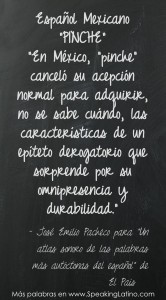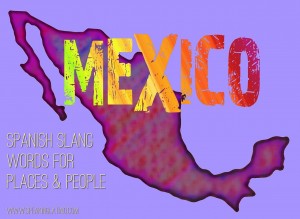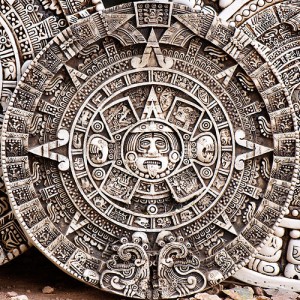A Mexican slang term used to describe the act of being rejected or turned down, typically in a romantic context. Examples Spanish: Le declaró su amor a María, pero ella lo calabazeó. English: He declared his love to Maria, but she turned him down.
bola
In Spanish slang, 'bola' is commonly used in Latin American countries such as Mexico and Cuba to refer to a lie or falsehood. It can also be used to refer to a large quantity or amount of something. Examples Spanish: No me cuentes bolas, dime la verdad. English: Don't tell me lies, tell me the […]
basculear
A colloquial term primarily used in Puerto Rico, which means to hang out, chill or relax. Examples Spanish: Vamos a basculear en la playa este fin de semana. English: We are going to chill at the beach this weekend.
apapacho
A Mexican slang term used to describe a warm, comforting hug or cuddle that makes you feel loved and cared for. It can also refer to an action or gesture that makes someone feel good or special. Examples Spanish: Después de un largo día, un apapacho de mi madre es todo lo que necesito. English: […]
alberca
A colloquial term commonly used in Mexico for 'swimming pool'. Examples Spanish: Vamos a la alberca a nadar. English: Let's go to the swimming pool to swim.
agüite
A term used in some Latin American countries, especially Ecuador, to describe sadness, disappointment, or depression. Examples Spanish: Después de perder el partido, él estaba en agüite. English: After losing the match, he was in agüite (downcast).
agujetas
A Spanish slang term that refers to the muscle soreness or stiffness following an unaccustomed or strenuous exercise. Examples Spanish: Después de mi primera clase de yoga, tengo muchas agujetas. English: After my first yoga class, I have a lot of muscle soreness.
¿onta?
A contraction of '¿dónde está?' which means 'where is it?' or 'where are you?' in English. It's commonly used in informal and casual conversations among friends and relatives. Examples Spanish: ¿Onta mi celular? Lo dejé aquí hace un momento. English: Where is my phone? I left it here a moment ago.
The Meaning of the Mexican Spanish Word PINCHE
Every country has a flag, food and symbols that identify them. But what about a single word? During the 6th International Congress of the Spanish Language (VI Congreso Internacional de la Lengua Española) celebrated in Panama, the blog Papeles Perdidos, created by the newspaper El País, published an atlas of the representative words of Spanish-speaking […]
8 Mexican Spanish Slang Words for Places and People
Demonym or gentilic is the name given to people living in a village, town, city or country. Usually it is derived from the name of the same town. For example, the demonym of the people from Mexico is Mexican. While reading the books Quick Guide to Mexican Spanish and Quick Guide to More Mexican Spanish […]
CHINGAR: The Most Important Mexican Spanish Slang Word
The verb chingar is known throughout Latin America, but there is no other country that uses and abuses this word like Mexico. Chingar is the most important word in Mexico. Here is the official dictionary definition by the Royal Spanish Academy versus the Mexican Spanish meaning of chingar. Chingar according to the Royal Spanish Academy […]
ORALE meaning In Spanish? (And How To Respond)
Yes! This is a great question because órale in Spanish is one of those versatile Mexican slang words that can mean a few different things. Generally órale in Mexican Spanish means got it, okay, no problem or something similar. What does ¡Órale! mean? You will see and hear this word everywhere from comedian Gabriel Iglesias […]
guajolote
A Mexican slang term for turkey, often used in a humorous or affectionate way. Examples Spanish: Vamos a cocinar un guajolote para la cena de Navidad. English: We're going to cook a turkey for the Christmas dinner.
zoquete
A derogatory term used in Spain to describe someone who is dull, stupid or not very bright. Examples Spanish: Deja de actuar como un zoquete y empieza a pensar con claridad. English: Stop acting like a blockhead and start thinking clearly.
rajarse
To back out or give up on something. It's often used to describe someone who chickens out or doesn't follow through with a plan or a challenge. Examples Spanish: Juan dijo que iba a saltar desde el trampolín, pero al final se rajó. English: Juan said he was going to jump from the diving board, […]
ranazo
A term used primarily in Mexico to refer to an unexpected hit, a sudden shock, or a big surprise. Examples Spanish: Me llevé un ranazo cuando me dijeron que tenía que trabajar el fin de semana. English: I got a shock when they told me I had to work over the weekend.
rollo
A term that can refer to a variety of things, but most commonly used to describe a situation, story, or a problem. It can also refer to a romantic relationship. Examples Spanish: No me cuentes todo el rollo, solo dime qué pasó. English: Don't tell me the whole story, just tell me what happened.
sencillo
In Spanish slang, 'sencillo' is often used to refer to small change or coins. It is also used to describe something simple or easy. Examples Spanish: 1) No tengo sencillo para pagar el autobús. 2) Este examen es muy sencillo. English: 1) I don't have small change to pay for the bus. 2) This exam […]
soplar
In Spanish slang, 'soplar' typically means 'to snitch' or 'to tell on someone'. It is a colloquial term often used among young people and in informal settings. Examples Spanish: No le vayas a soplar a la maestra que no hice la tarea. English: Don't snitch to the teacher that I didn't do the homework.
taco
In colloquial Spanish, apart from referring to the famous Mexican dish, 'taco' is also used to refer to a curse word or a strong language. Examples Spanish: Evita usar tacos cuando estás en una conversación formal. English: Avoid using curse words when you're in a formal conversation.
tetona
A colloquial term used to describe a woman with large breasts. It can be seen as offensive or vulgar depending on the context. Examples Spanish: Esa mujer es muy tetona. English: That woman has very large breasts.
fulano
An unspecified or random person, similar to 'John Doe' or 'so-and-so' in English. Examples Spanish: Fulano me dijo que iba a llover mañana. English: So-and-so told me that it's going to rain tomorrow.
gordo
In Spanish slang, 'gordo' is often used as an affectionate nickname that literally means 'fat'. However, when used as a term of endearment, it does not carry any negative connotations about the person's weight. Examples Spanish: ¡Hola, gordo! ¿Cómo estás? English: Hello, darling! How are you?
hocicón
A person who talks too much, often about things they should keep to themselves. Similar to 'big-mouth' or 'blabbermouth' in English. Examples Spanish: No le cuentes tus secretos a Juan, es un hocicón. English: Don't tell your secrets to Juan, he's a big-mouth.
huevón
In many Latin American countries, 'huevón' is a slang term used colloquially to refer to someone who is lazy or slow. However, in some contexts, it can also be used among friends as a term of endearment. Examples Spanish: ¡Apúrate, huevón! Vamos a llegar tarde al cine. English: Hurry up, lazy! We're going to be […]
jalar
In Mexican slang, 'jalar' is used to mean 'to work' or 'to function'. It can also mean 'to pull' in literal translation. Examples Spanish: Este carro ya no jala bien, necesito llevarlo al mecánico. English: This car doesn't work well anymore, I need to take it to the mechanic.
latoso
A Spanish slang term used to describe someone or something that is annoying, bothersome, or tiresome. Examples Spanish: No quiero ir a la fiesta porque Juan es muy latoso. English: I don't want to go to the party because Juan is very annoying.
mamón
In Spanish slang, 'mamón' is a term used to describe someone who is annoying, arrogant, or overly dramatic. It can also be used to call someone a sucker or fool. The term has a negative connotation and is considered informal. Examples Spanish: No seas mamón, sabes que no me gusta esa música. English: Don't be […]
pendejo
In many Spanish-speaking regions, 'pendejo' is a slang term often used derogatorily to refer to a fool, idiot, or incompetent person. However, its meaning can vary slightly depending on the context and region. Examples Spanish: No seas pendejo, ese tipo solo está tratando de engañarte. English: Don't be an idiot, that guy is just trying […]
petaca
In Spanish slang, 'petaca' often refers to a small bottle of alcohol, typically a flask. It can also refer to a person's backside in a somewhat vulgar or playful manner. Examples Spanish: 1. No olvides tu petaca para la fiesta esta noche. 2. Ella tiene una petaca muy grande. English: 1. Don't forget your flask […]



